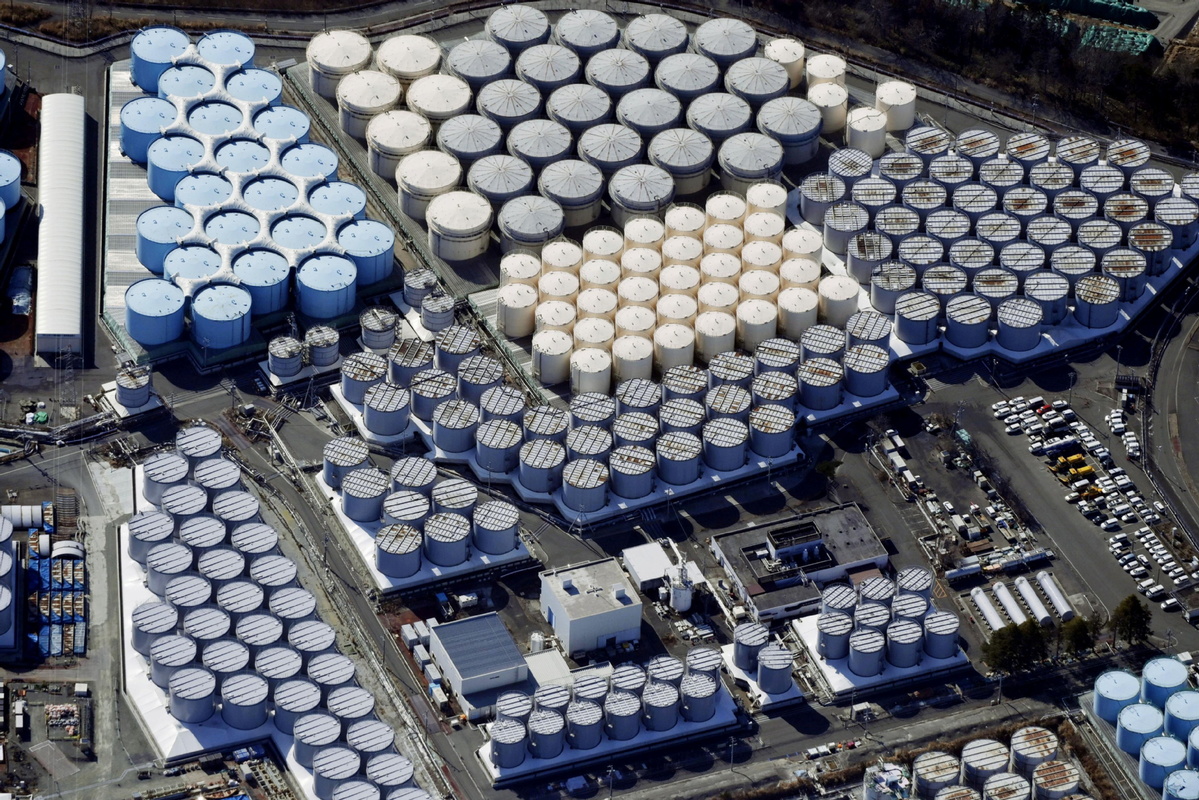Japan's discharge of wastewater a potential man-made disaster


The ocean is an essential resource for the Earth, belonging to all of humanity. No country, organization or individual can decide to discharge nuclear wastewater into the sea, Japan included.
Japan's scheduled discharging of nuclear wastewater into the ocean is becoming the most urgent man-made potential disaster, at least for countries around the Pacific. Nuclear wastewater not only could pollute and destroy the entire marine ecological environment, but also could continuously affect biological reproduction, food chains, food safety, health and human life.
Compared with the disasters caused by climate change and human virus infections, the result of discharging nuclear wastewater into the sea could be catastrophic and irreversible, with irreparable losses, and with a more terrible and far-reaching impact.
Despite all the pacification and alleged cover-up campaigns of the Japanese government and Tokyo Electric Power Co, the general public is right to be wary of multiple nuclear vestiges in the Fukushima wastewater.
The Japanese government has repeatedly said that the so-called treated water only has "negligible radioactive effects on humans and the environment". However, the Japanese handling is primarily focused on removing radioactive nuclides other than tritium, as tritium is not removable. The half-life of tritium is 12.3 years, which means its radioactivity can be negligible only after 100 years.
Scientists Robert Richmond, director of the Kewalo Marine Laboratory in Hawaii, and Cecile Asanuma-Brice have made it clear that discharging wastewater containing the radioactive isotope tritium into the ocean will pose great risks to global human health and marine ecology.
As tritium is difficult to metabolize once it enters the human body, when the tritium content in the body increases and toxicity becomes stronger, people may suffer from infertility, anemia, liver enlargement and even genetic mutations.
Ken Buesseler, a marine radiochemist at the Woods Hole Oceano-graphic Institution in the United States, pointed out in the journal Science in 2020 that, besides tritium, the processed wastewater also contains residual radioactive substances such as carbon-14, cobalt-60, and strontium-90.
These radioactive substances require longer times to degrade but are more easily absorbed by marine organisms such as phytoplankton, as well as fish and seafloor sediment, which spread farther with ocean currents across the globe.
Consuming these substances in the fishing food chain may affect cell health or even cause genetic damage. Nuclear experts said carbon-14 in Japan's nuclear-contaminated wastewater may pose a danger for thousands of years and could cause genetic damage, while strontium-90 can induce leukemia.
Yet Japan has failed to answer for these residual isotopes, if not totally ignoring them.
The truth is, however "negligible "the radioactive isotopes remain, and however safe the processed water might be, Japan is choosing not to use or even store it on its own land.
Continuing to solidify and store nuclear wastewater in place until tritium's radioactive decay is considered by experts to be one of the more sensible disposal options. There is still plenty of land around the nuclear power plant to build new storage tanks, and the technical issues, processing difficulty and funding are not more significant than discharging nuclear wastewater into the ocean.
If the Japanese government had taken this approach 12 years ago, the problem would likely have been solved by now.
What is ironic is that Japanese know the sufferings of radiation more than others. After the atomic bombs dropped on Hiroshima and Nagasaki during World War II contaminated the land with nuclear radiation, many children with microcephaly were born, and various types of cancer appeared in Japan.
Thus, Japan for a long time has vigorously developed a greenhouse and uncontaminated blue ocean economy. Today, the Asia-Pacific Green Deal and the United Nations'2030 Sustainable Development Goals require Japan to further stress eco-friendly actions, not the discharge of contaminated wastewater into the ocean.
Instead of going against the global green tide, the Japanese government should stop its plan to discharge nuclear wastewater into the Pacific. The silent support of some Western countries may embolden Japan to ignore the public complaints and diplomatic opposition of neighboring countries, but history will condemn the Japanese government for again betraying humanity to persist, arrogantly and stubbornly, with a decision that is irrational, irresponsible, immoral and unrealistic.
Already, many individuals, groups and institutions are speaking out against Japan's plan. With its advanced technology, Tokyo should withhold from poisoning the ocean and fish, and store such water by other means.
The author is founder and president of the Hong Kong-based World Green Organisation.
































